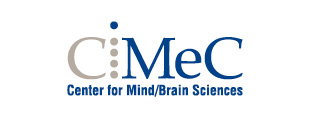Overview | Research directions | Members | Publications | Grants | Ongoing collaborations
Overview
Using invertebrate animal models such as bees we investigate cognitive abilities from a comparative perspective to understand the evolution and function of neurocognitive systems. We also study the mechanisms of specific abilities and their neural correlates.
Research directions
- Lateralization: TThe different functional specialization of the right and left sides of the nervous system has been shown to be a characteristic of complex brains as well as simpler ones. We investigate this fascinating phenomenon in different vertebrate (including humans) and invertebrate species to uncover possible mechanisms and functions shared by different taxa as well as its evolution.
- Sentience and pain: The traditional view that only vertebrates can feel pain is slowly fading. Invertebrates display complex behaviours and responses to stimuli, raising questions about their capacity to experience pain. Our research aims to provide behavioural and neuropharmacological evidence for their conscious pain. Understanding their experience could have implications for their conservation and ethical treatment. In addition, a greater awareness of invertebrate sentience could broaden our perspective on the nature of consciousness and pain in animals.
- Environmental stress: Pollinators as honeybees are fundamental for our ecosystem, but they are subject to several environmental stressors both biotic (e.g., viruses and bacteria, other competing species) and abiotic (e.g., temperature, availability of nutrients, pesticides) which are worsen by climate change. We study the effect of such stressors on bees’ behaviour and cognition through behavioural experiments, electrophysiology, and neuroimaging to help promoting a resilient beekeeping.
- Microbiota and cognition: In several species the gut-brain communication has a large impact on behaviour and cognition, raising interesting questions on the importance of a healthy gut-brain relationship for behavioural and cognitive abilities essential for survival. Through honeybee gut microbiota manipulation and with field experiments on honeybees treated with anti-biotics, we study which bacteria influence locomotion and cognition and how normal behaviour and cognition can be restored through diet with specific bacteria (e.g., Bartonella, Bifidobacterium and Lactobacillus).
Members
- Elisa Frasnelli, Principal Investigator
- Davide Liga, Research Fellow
- Elisa Pasquini, PhD Student
- Irmak Pismisoglu, Master student
- Tim Simon, Research Fellow
- Celine Angela White, Master student
Past Members
- Léa Baucour, trainee
- Anna Blaauwgeers, Erasmus+ student (internship)
- Jochem Brouwer, Erasmus+ student (internship)
- Victor Di Rollo, trainee
Publications
For a complete list see Elisa Frasnelli personal webpage
Grants
- Welcome grant for new PIs
- Museo civico di Rovereto 2023
- 5xMILLE IBC 2023
- Project "IBC: Impollinatori, Biodiversità e Cambiamento climatico - Pollinators, Biodiversity and Climate Change", Fondazione Cassa Rurale di Trento
- Project “Il ruolo del microbiota su locomozione, abilità cognitive e salute dell’ape da miele - The role of the microbiota on locomotion, cognitive abilities, and health of the honey bee (MicroBee)”, CUP E63C23001870007, Fondazione CARITRO
- Project "LAterality DIstribution across the two SEXes (LADISEX): Comparative data for theoretical models", PRIN 2022, identification code 202222EJZE, CUP E53D23008620001

Ongoing collaborations
- Gianfranco Anfora and Omar Rota Stabelli, C3A, University of Trento, IT
- Gillian Forrester, University of Sussex, UK
- Albrecht Haase, CIMeC, University of Trento, IT
- Giulia Prete and Luca Tommasi, University of Chieti-Pescara, IT
- Marcello Siniscalchi and Serenella D’Ingeo, University of Bari, IT
- Anna Wilkinson, Tom Pike and Daniel Mills, University of Lincoln, UK

